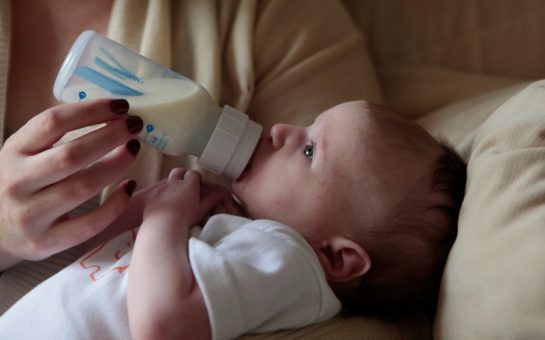A world-renowned vascular surgeon has revealed the extraordinary stresses of life in the NHS that made him swap the scalpel for the spatula and sell waffles in Wimbledon.
Eric Chemla, now 50, moved from his native Paris in 2002 after experiencing increased anti-Semitism to take up a job at St George’s Hospital in Tooting.
After 15 years, Mr Chemla made a dramatic career change by leaving St George’s and running a Wafflemesiter franchise with his wife Pascale, a former nurse.
He pinpoints the reasons for his decision on hospital management who created extra stress, beyond the clinical, which became almost crippling.
“You become a shadow of yourself. You’re constantly on edge,” Mr Chemla explains, sitting in his basement office on Wimbledon’s Broadway, a mile and a half west of St George’s.
Despite working in a large London teaching hospital, the former surgeon explains that on some nights there was only one emergency operating theatre, out of a possible three, open.
In night-time emergencies, the management allegedly told surgeons to decide among themselves who should get surgery.
“So, I’m a vascular surgeon and somebody’s dying with that sort of emergency. The other guy’s an orthopaedic surgeon and somebody’s dying from their emergency,” he recalls.
“I know nothing about orthopaedic surgery and he knows nothing about vascular surgery, and you’re asking me to duke it out with him.”
On another occasion, the lights went out completely during an operation, with technicians taking an hour to restore the light.
“What do you do? Do you keep the patient open?” he asks.
Mr Chemla completed the operation using a headtorch.
Another cost saving measure saw the hospital switch from using first class to second class stamps for posting letters to patients, without allowing for slower delivery via the Royal Mail.
This led to operations being cancelled and appointments missed.
Patient transport ambulances turned up on the doorsteps of unsuspecting patients, with letters still in the post.
While changing to second class stamps saved the NHS 9p for each letter sent, it is estimated that each missed appointment costs £160.
Mr Chemla also tells how his ward was given £2,000-flatscreen TVs to replace whiteboards as part of a new IT system.
However, the necessary software was not included for nine months, so the staff hung the whiteboard over the TV.
Mr Chemla said: “The problem is that we’ve become obsessed and driven by money, because the NHS authorities, they tell you ‘you’re in deficit £50m, you’ve got to cut this, cut this, cut this’ but this is health. This is very different. You’re not selling McDonalds here. The quality you cannot cut.”
Despite the affection he clearly has for the hospital and its staff, the psychological toll was high.
“What I’ve come across is anxiety. Very high levels of anxiety and stress, which means that relationships could sometimes become tense [with colleagues], because you’re fighting over one scarce resource,” the former surgeon explains.
After 15 years at St George’s, with six spent in a management role, he reached his breaking point.
“I started counting down the years I had to work until retirement. And then the months,” he said.
“I couldn’t take it anymore. It was eating me from the inside.
“If you have all the money in the world, but you feel completely destroyed from within, it’s just terrible.
“The stresses I had as a surgeon were the kind that eat away at you and give you that bad taste at the back of your mouth.
“So I feel relieved and free.”
Mr Chemla also explains the impact it had on one particular ward sister.
He said: “She was dedicated to patients and couldn’t tolerate somebody suffering. She was really somebody you respect.
“She was inspiring, but she was disheartened in the end. She got fed up. Somebody like that being disheartened is criminal I think.
“You should never leave these people being disheartened. Because they’re the engine. They’re the fantastic people at the forefront.”
However, Mr Chemla admits he doesn’t regret his decision to move to the UK.
“Coming to Britain was my best move. This country is much, much better, and much more tolerant than France. I loved St George’s. I felt I belonged to St George’s.”
Now starting out in a new business, he feels much happier. He looks visibly relieved to be responsible only for his customers and small staff in a Wimbledon waffle shop.
“I used to be the surgeon. Now I’m not the surgeon, I’m just selling waffles,” he said.
“But I’m happier. It doesn’t matter. I know what I need.”
“There is stress, but it’s not life and death.”
Although they remain within walking distance of St George’s, the suffocating stress of the NHS seems a long way from here for Mr Chemla.




